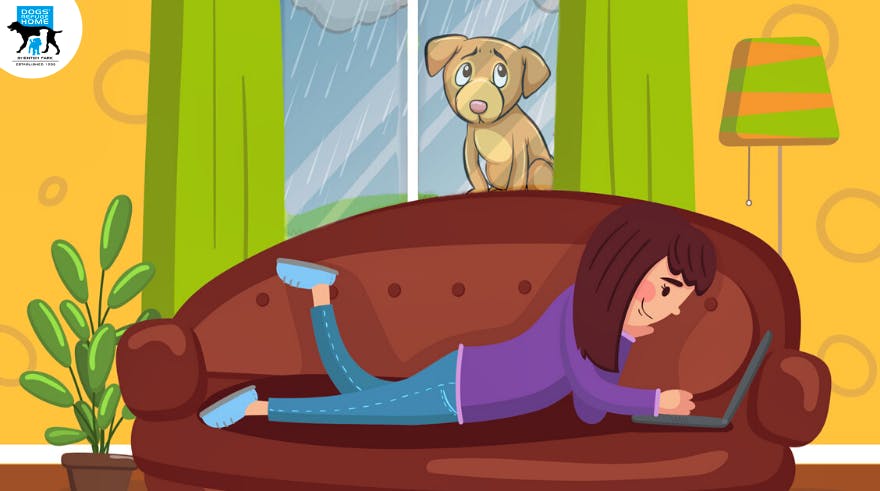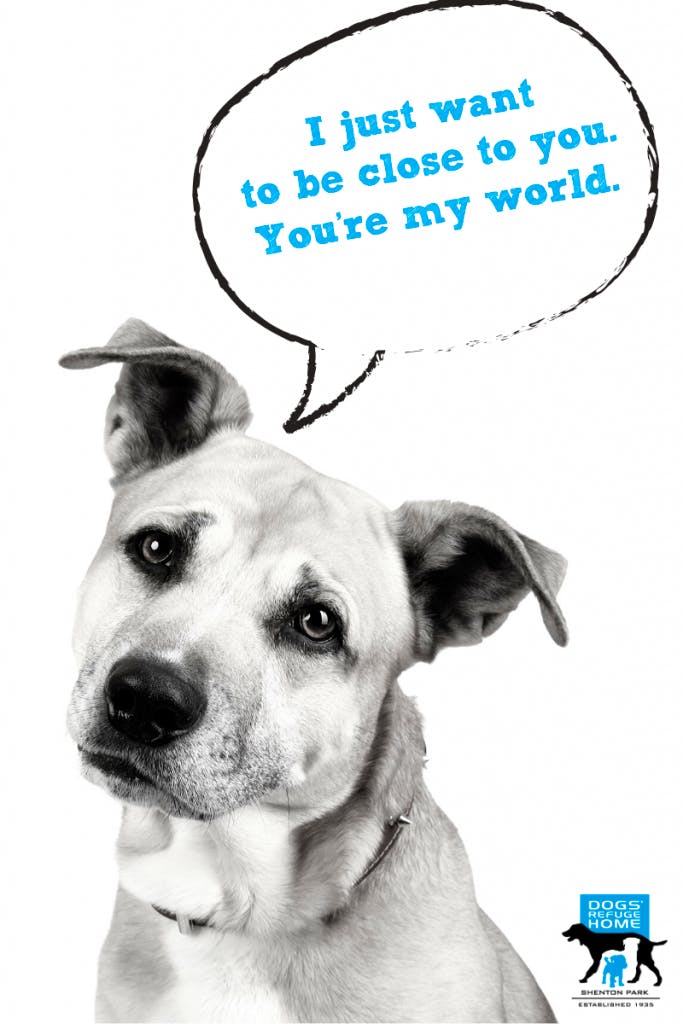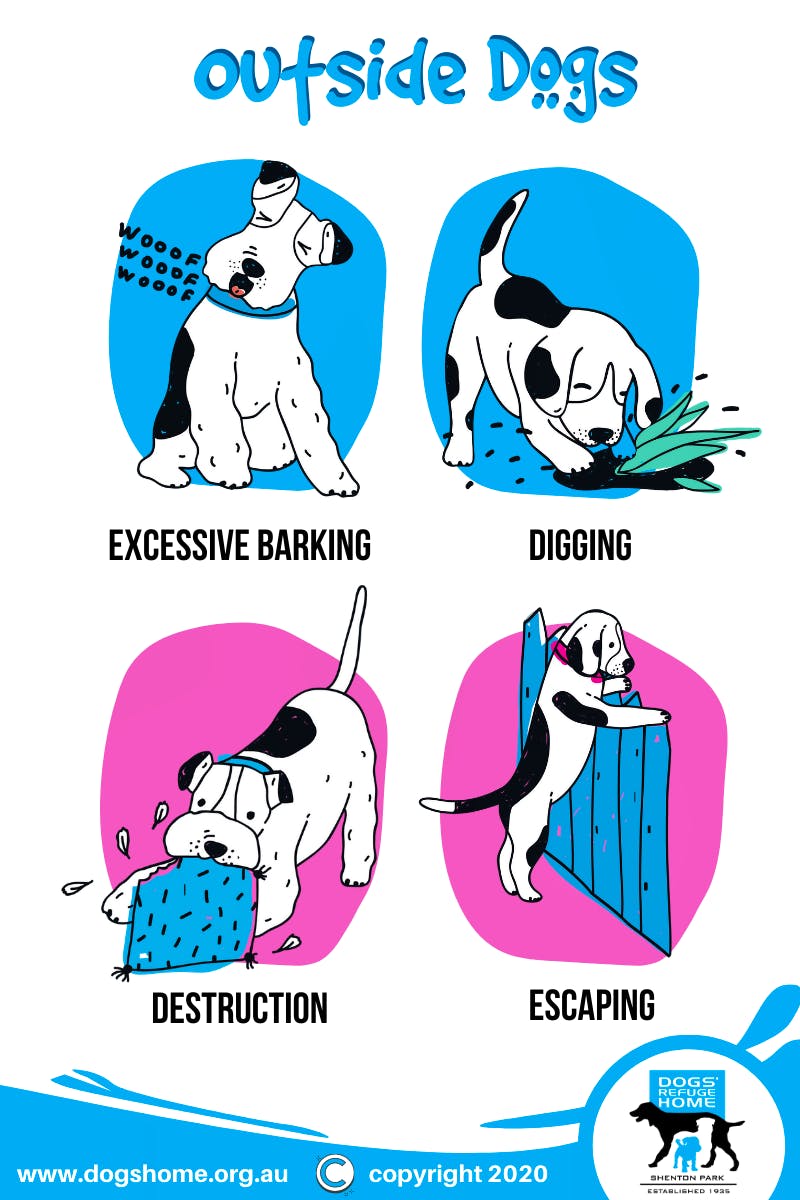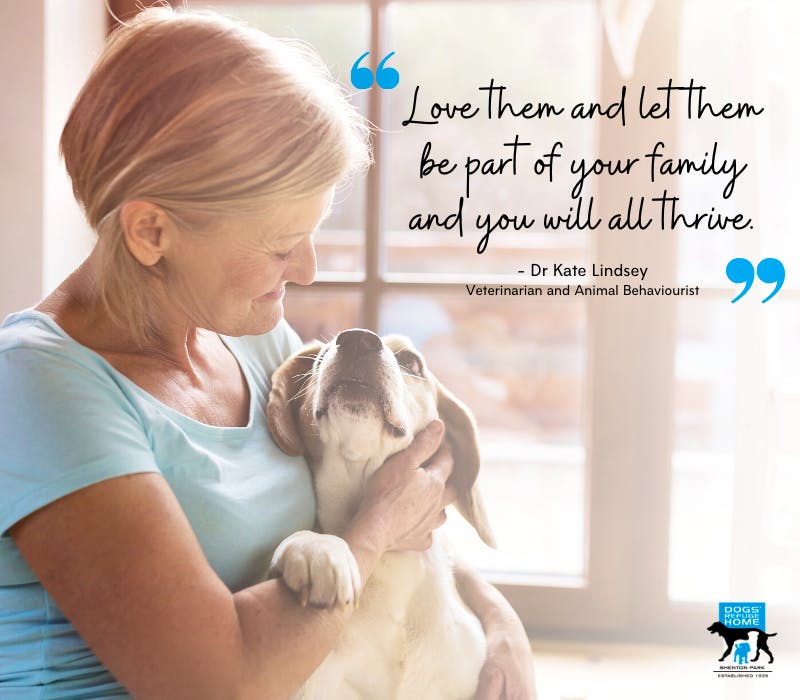
Here at the Dogs’ Refuge Home, one of our most important policies is our policy surrounding outside-only dogs. We know, it’s a controversial subject, but a very important subject.
Now, if you’ve been active on our social channels, you’ll know from time to time, we get a few disgruntled people who have been declined a rescue dog. We don’t take these decisions lightly and we always do our best to match our dogs with a prospective dog-owner, but when it comes to a dog being outside 24/7, we have to put the interests of the dog first.
If you’ve made the big decision to add a dog to your family and household, but you have reservations about your furry new friend being inside, please take a moment to read the information in this blog post.
We spoke with our friend and Veterinarian and Animal Behaviourist Dr Kate Lindsey from KALMPETS, who explained why dogs should be allowed inside with their families.
“Dogs are biologically wired to live in close contact with their family – that’s where they thrive. If that need isn’t met, it drives all sorts of behaviour problems, including attention-seeking issues, barking, general anxiety, hyper-vigilance, separation anxiety – just to name a few.” – Dr Kate Lindsey
Between 50 – 60% of dogs coming into our shelter have either been outside-only dogs or have spent the majority of their lives outside with little interaction with the humans they love so much. Our job is not only to find them a new home but to find them a home where they will live enriching lives and be considered as part of the family – putting them in exactly the same environment as their previous home will only exacerbate any undesirable behaviours and commonly result in the dog being returned to our shelter.
Let’s not forget, we have our friends, family, jobs and hobbies to help keep our lives interesting and meaningful, but our canine friend’s lives revolve around us, and if we can’t include them as part of the family, they end up living a very lonely existence.
“Dogs simply don’t function well alone. They only have the cognitive abilities of a three-year-old child and they tend to get frightened if they don’t have someone they can check in with regularly. This is not as simple as getting another dog to keep your dog company, that’s just like putting two toddlers in the backyard overnight – it doesn’t fix the problem, you now just have two toddlers in the backyard with the same issues.” – Dr Kate Lindsey
Dr Kate Lindsey advises people to set aside one room (if not more) that is a dog-free zone in your home. Dr Kate says it’s not imperative they have free-for-all access to every area of your home, but they must have areas inside the home that they can share with you so that your dog can be part of the family – this will help alleviate many behaviour problems.
The most common behaviour problems that we see with outside-only and predominantly outside dogs are:
- Excessive barking
- Whining
- Digging and destructive behaviours
- Generalised anxiety
- Separation Anxiety
- Attention-seeking behaviours
- Escaping the property
Attention-seeking behaviours are quite common with outside dogs. Dr Kate explains to us exactly what that is and why regular human interaction is important for dogs:
“Dogs, like any mammal, have a series of needs that need to be met on a regular basis and one of those is companionship. If you don’t meet their companionship needs, when you do interact with your dog they will likely show rebound behaviours such as barking at you, pulling at your clothes, nipping and jumping up at you or your guests – this is because they are compensating for the fact that they’ve been deprived of that need being met.
Love them and let them be part of your family and you will all thrive.”

Lastly, it’s not often, but sometimes we do have dogs that prefer to be outside and don’t like being inside. In this instance, we would be looking for a person who likes spending time in their garden or yard, so that the dog receives adequate companionship.
Don’t forget to share this with your friends and family.
If you have any further queries, please email us at communications@dogshome.org.au.
*Information supplied by Dr Kate Lindsey of KALMPETS and Dogs’ Refuge Home, Shenton Park.
To find out more information on Dr Kate Lindsey’s services at KALMPETS, please visit her website here
